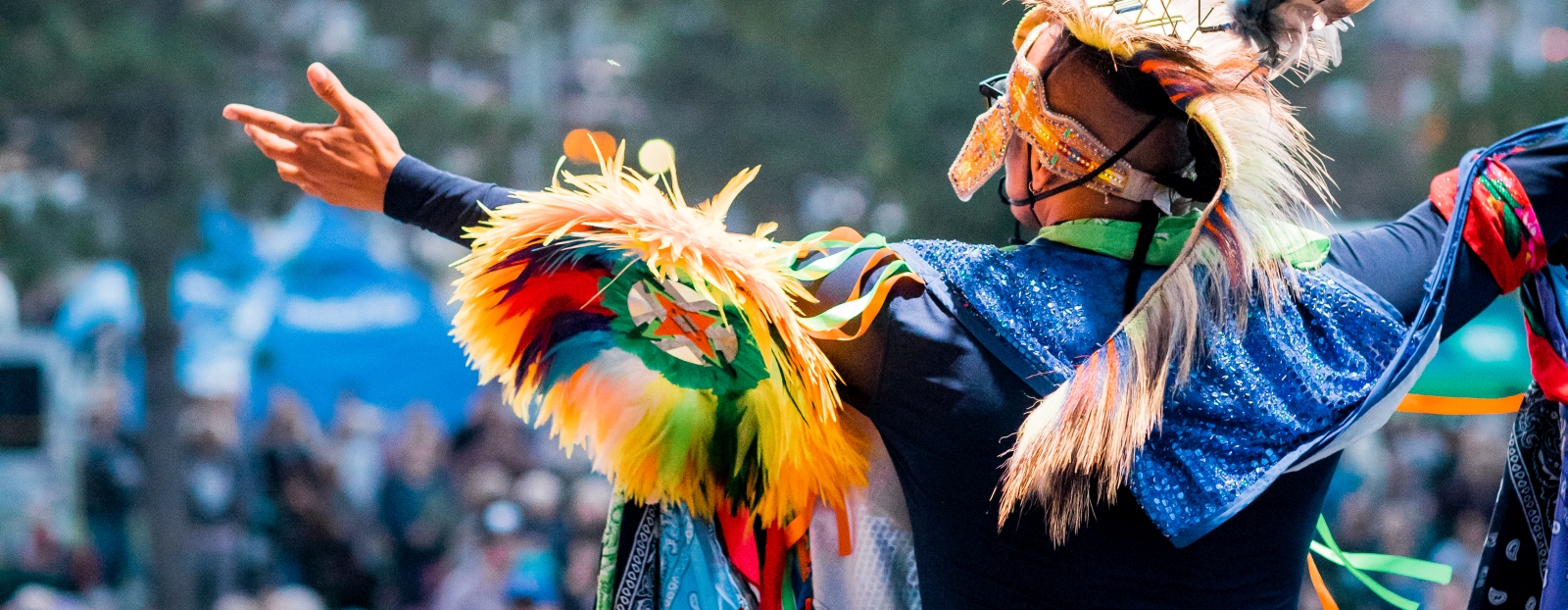In Thunder Bay, we live on the traditional lands of the Anishinaabe peoples, within the Robinson-Superior Treaty territory, and we are also part of the historic Métis homeland. This place has always been shaped by the knowledge, resilience, and contributions of Indigenous Peoples.
Reconciliation is not a single action—it’s an ongoing commitment to listen, learn, and walk together in a better way. By deepening our understanding of Indigenous histories and cultures, we can strengthen relationships and build a more inclusive future for everyone in our community.
The links below offer opportunities to explore Indigenous histories, reflect on the impacts of residential schools and colonization, and discover ways to support reconciliation in daily life.
|
Reconciliation Through Indigenous Education- University of British Columbia |
|
Enhance your understanding and knowledge of practices that advance reconciliation in the places where you live, learn, and work. This course will help you envision how Indigenous histories, perspectives, worldviews, and approaches to learning can be made part of the work done in classrooms, organizations, communities, and in everyday experiences in ways that are thoughtful and respectful. In this course, reconciliation emphasizes changing institutional structures, practices, and policies, as well as personal and professional ideologies to create environments that are committed to strengthening relationships with Indigenous peoples.
Reconciliation Through Indigenous Education - Office of Professional Learning
|
|
Aboriginal Worldviews and Education- University of Toronto |
|
Intended for both Aboriginal and non-Aboriginal learners, this course will explore indigenous ways of knowing and how they can benefit all students. Topics include historical, social, and political issues in Aboriginal education; terminology; cultural, spiritual and philosophical themes in Aboriginal worldviews; and how Aboriginal worldviews can inform professional programs and practices, including but not limited to the field of education.
|
|
Indigenous Canada- University of Alberta |
|
Indigenous Canada is a 12-lesson Massive Open Online Course (MOOC) from the Faculty of Native Studies that explores the different histories and contemporary perspectives of Indigenous peoples living in Canada. From an Indigenous perspective, this course explores complex experiences Indigenous peoples face today from a historical and critical perspective highlighting national and local Indigenous-settler relations.
|
|
Indigenous Culture & Inclusivity Training- Wake the Giant |
|
This new virtual training platform provides an online experience that is interactive and thoughtfully designed to help users reflect, respond and grow. It helps support businesses, companies and organizations in creating more inclusive spaces, free of racism, where Indigenous People are welcome. Participants will learn to identify racism and engage in anti-Indigenous racism strategies while exploring Indigenous history, culture, and traditions. The training has information that help to understand the harmful processes of colonization in Canada, including the residential school system and the 60’s scoop. It’s an engaging online platform, that incorporates assessment quizzes, a complete glossary of ‘need to know’ terminology, videos, and case study scenarios.
|
|
The Maamwi Hub- The Learning Portal, College Libraries Ontario |
|
The Maamwi Hub is inspired by the TRC 94 Calls to Action to ensure that the 24 Colleges of Ontario lead in the education of staff and students on the diverse Indigenous histories, cultures, and current Indigenous worldviews. The word "Maamwi" means "together" in Anishinaabemowin, one of the many spoken Indigenous languages in the territory currently referred to as Ontario. The Maamwi Hub is a resource to support your ongoing reconciliation journey. It can serve as a pathway to an authentic commitment to learn and reflect on the past and present impacts of colonial history on Indigenous Peoples in Turtle Island, and to gain a deeper understanding and appreciation of Indigenous cultures, knowledges, and worldviews.
Home - Maamwi - The Learning Portal at Ontario Colleges Library Services
|
| Walk a Mile |
|
Created by Michelle Derosier of Thunderstone Pictures, the films address important topics such as treaties, racism, and violence against women, aiming to foster cultural understanding and encourage frank conversations about Indigenous issues. The project is part of the City of Thunder Bay's commitment to strengthening relationships with urban Aboriginal Peoples and promoting reconciliation. The films are available for viewing and can serve as teaching tools for various community members.
|
| Reconciliation Through Indigenous Education |
|
Enhance your understanding and knowledge of practices that advance reconciliation in the places where you live, learn, and work. This course will help you envision how Indigenous histories, perspectives, worldviews, and approaches to learning can be made part of the work done in classrooms, organizations, communities, and in everyday experiences in ways that are thoughtful and respectful. In this course, reconciliation emphasizes changing institutional structures, practices, and policies, as well as personal and professional ideologies to create environments that are committed to strengthening relationships with Indigenous peoples.
|
| UN Declaration on the Rights of Indigenous Peoples (UNDRIP) |
|
The Declaration is the most comprehensive instrument detailing the rights of Indigenous peoples in international law and policy, containing minimum standards for the recognition, protection and promotion of these rights. It establishes a universal framework of minimum standards for the survival, dignity, wellbeing and rights of the world's Indigenous peoples. The Declaration addresses both individual and collective rights; cultural rights and identity; rights to education, health, employment, language, and others. It outlaws discrimination against Indigenous peoples and promotes their full and effective participation in all matters that concern them. It also ensures their right to remain distinct and to pursue their own priorities in economic, social and cultural development. The Declaration explicitly encourages harmonious and cooperative relations between States and Indigenous peoples.
UN Declaration on the Rights of Indigenous Peoples | OHCHR UNDRIP Explained for Kids, by Kids (with Gilbert Whiteduck) - WORLD-CHANGING KIDS United Nations Declaration on the Rights of Indigenous Peoples - NCTR
|
| Truth and Reconciliation Commission of Canada |
|
The National Centre for Truth and Reconciliation (NCTR) is a place of learning and dialogue where the truths of Residential School Survivors, families and communities are honoured and kept safe for future generations. The NCTR educates Canadians on the profound injustices inflicted on First Nations, Inuit and the Métis Nation by the forced removal of children to attend residential schools and the widespread abuse suffered in those schools. NCTR preserve the record of these human rights abuses, and promote continued research and learning on the legacy of residential schools. Our goal is to honour Survivors and to foster reconciliation and healing on the foundation of truth telling. The NCTR was gifted the spirit name bezhig miigwan which, in Anishinaabemowin, the language of the Anishinaabe people, means “one feather.” The name’s a reminder that every Survivor needs to be shown the same respect and attention that an eagle feather deserves. The name also teaches us that we are vital to the work of reconciliation. The NCTR is located on original lands of Anishinaabeg, Ininiwak, Anisininewuk, Dakota Oyate and Dene, the homeland of the Red River Métis, and home to many Inuit.
NCTR - National Centre for Truth and Reconciliation Truth and Reconciliation Commission of Canada: Calls to Action - NCTR
|
| Seven Youth Inquest |
|
What was the Seven Youth Inquest
Key Findings & Issues Raised
The Recommendations The jury issued 145 recommendations, which were grouped roughly into:
These recommendations were directed to multiple parties: federal and provincial governments, City of Thunder Bay, the Police Service, Indigenous organizations and education authorities, etc.
Inquest into the deaths of seven First Nations youths | ontario.ca Seven Youth Inquest Jury Recommendations - Nishnawbe Aski Nation
|
| National Inquiry into Missing and Murdered Indigenous Women and Girls |
|
The National Inquiry into Missing and Murdered Indigenous Women and Girls (MMIWG), launched in 2016, examined the systemic causes of violence against Indigenous women, girls, and Two-Spirit people in Canada. Its 2019 final report, Reclaiming Power and Place, describes this violence as rooted in colonialism and systemic discrimination and includes 231 Calls for Justice to protect and support Indigenous communities.
National Inquiry into Missing and Murdered Indigenous Women and Girls Murdered & Missing Indigenous Women & Girls - Assembly of First Nations Calls For Justice- National Inquiry into MMIWG
|
|
Project Implicit | Understanding your unconscious attitudes and beliefs |
|
Psychologists at Harvard, the University of Virginia and the University of Washington created "Project Implicit" to develop Hidden Bias Tests—called Implicit Association Tests, or IATs, in the academic world—to measure unconscious bias. These tests reveal how automatic categorization—once key to human survival—forms the basis of stereotypes, prejudice, and discrimination. By becoming aware of hidden biases, people can monitor their language, behavior, and interactions to reduce harm. Research suggests that consciously choosing inclusive behaviors, such as building diverse relationships, can gradually weaken unconscious biases. While it may be tempting to dismiss test results, true progress requires reflection, recognition of bias in both ourselves and society, and commitment to action.
|
Contact Us










